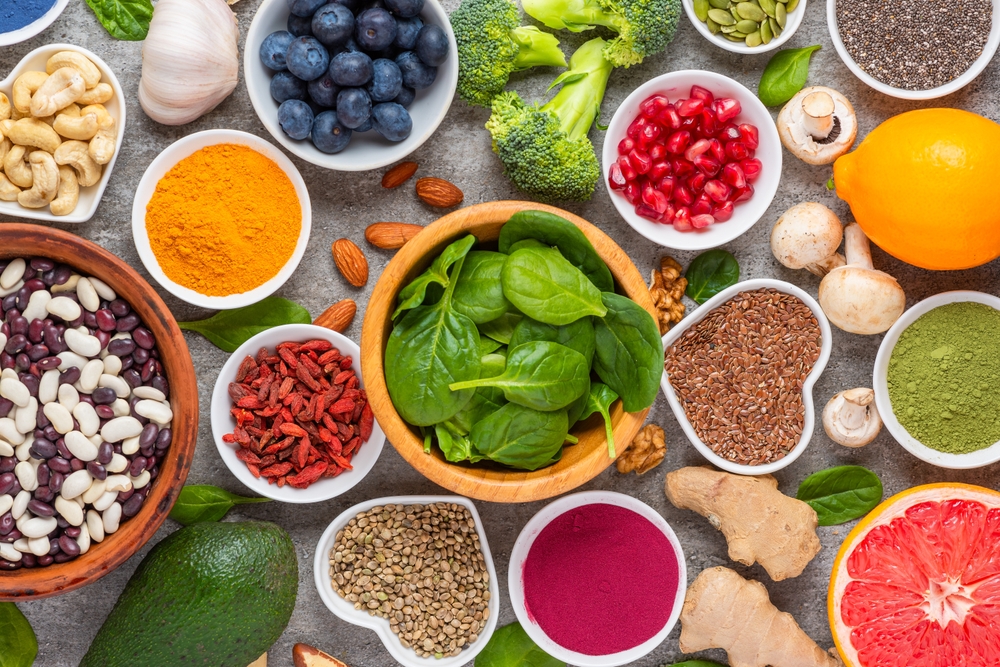Fuel Your Body Right: The Importance of Balanced Nutrition and Diet
Hey there! Have you ever thought about what goes into your body? It’s not just about filling your stomach; it’s about giving your body the fuel it needs to thrive! Just like a car needs the right kind of gas to run smoothly, your body needs the right kind of nutrition to stay healthy and energetic. That’s where balanced nutrition comes in.
So, what exactly is balanced nutrition? It’s about eating a variety of foods in the right amounts so that your body gets everything it needs to function well. This blog will guide you through why balanced nutrition is essential, what nutrients you need, and how to make healthy eating a part of your daily life. Let’s dive in!
Why Balanced Nutrition Matters
What is Balanced Nutrition?
Balanced nutrition means eating a mix of different foods to get all the essential nutrients your body needs. This includes proteins, carbohydrates, fats, vitamins, minerals, and, of course, water. Each of these nutrients plays a unique role in keeping you healthy and energetic.
Benefits of Balanced Nutrition for Health and Growth
When you eat a balanced diet, you’re setting yourself up for a world of benefits! Here’s what balanced nutrition can do for you:
- Supports Growth and Development: If you’re still growing, your body needs plenty of nutrients to develop properly. Proper nutrition is especially important during your teenage years, when your body undergoes significant changes.
- Boosts Your Immune System: A balanced diet helps your body fight off illnesses. When you eat foods rich in vitamins and minerals, you’re giving your immune system the tools it needs to keep you healthy.
- Enhances Energy Levels: Have you ever felt sluggish after eating junk food? That’s because your body craves the right nutrients to function optimally. A balanced diet provides the energy you need for school, sports, and everything in between.
- Improves Mood and Mental Clarity: Eating well not only helps your body but also your mind! A balanced diet can help you concentrate better in school and keep your mood stable. You’re more likely to feel happy and focused when you’re eating the right foods.

Key Nutrients Your Body Needs
So, what exactly does your body need to stay healthy? Let’s break it down:
Proteins: Building Blocks of Life
You might have heard that protein is essential for growth, and that’s true! Proteins are the building blocks of your body. They help repair cells, build muscles, and support your immune system.
Sources of Protein:
- Chicken, turkey, and other lean meats
- Fish and seafood
- Eggs
- Beans and lentils
- Nuts and seeds
- Dairy products like yogurt and cheese
Carbohydrates: Your Energy Source
Carbohydrates are your body’s main source of energy. When you eat carbs, your body breaks them down into glucose, which is used for fuel. Think of carbohydrates as the gas that keeps your body running!
Good Carbs vs. Bad Carbs:
- Good Carbs: Whole grains (like brown rice and whole wheat bread), fruits, and vegetables. These foods provide lasting energy and are packed with nutrients.
- Bad Carbs: Sugary snacks, soda, and white bread. These can give you a quick energy boost, but they often lead to crashes and don’t provide essential nutrients.
Fats: The Good and the Bad
Fats often get a bad rap, but not all fats are created equal. Your body needs healthy fats for various functions, like hormone production and absorbing certain vitamins.
Healthy Fats:
- Avocados
- Olive oil
- Nuts and seeds
- Fatty fish like salmon
Unhealthy Fats:
- Fried foods
- Fast food
- Baked goods with trans fats (like some cookies and pastries)

Vitamins and Minerals: Small but Mighty
Vitamins and minerals may be tiny, but they pack a powerful punch when it comes to your health! They help with everything from keeping your bones strong to boosting your immune system.
Key Vitamins and Minerals:
- Vitamin C: Found in oranges and strawberries, it helps your immune system.
- Calcium: Important for strong bones, found in dairy products and leafy greens.
- Iron: Helps transport oxygen in your blood, found in meat, beans, and spinach.
Water: The Most Important Nutrient
Water is often overlooked, but it’s the most crucial nutrient for your body! Staying hydrated helps with digestion, keeps your skin healthy, and even helps your brain work better.
How Much Water Should You Drink?
Aim for about 8 cups (2 liters) of water a day. If you’re active or it’s hot outside, you may need even more. A good way to know you’re hydrated is to check the color of your urine—it should be light yellow!
How to Create a Balanced Diet
Creating a balanced diet doesn’t have to be complicated! Here are some simple tips to help you eat well:
Choose Variety in Food
Eating a variety of foods ensures you get all the nutrients your body needs. Try to include different colors on your plate—this usually means you’re getting a range of vitamins and minerals. For example, a colorful salad with greens, tomatoes, carrots, and peppers is a great way to boost your nutrient intake!
Portion Control and Mindful Eating
Mindful eating means paying attention to what you eat and enjoying each bite. It’s important to control your portions, too! Here are some tips:
- Use smaller plates to help manage portion sizes.
- Pay attention to when you feel full, and stop eating when you’re satisfied, not stuffed.
- Avoid distractions like screens while eating, so you can focus on your meal.
Include Fruits, Vegetables, and Whole Grains
Make fruits and vegetables the stars of your meals! Aim to fill half your plate with these colorful foods. They’re packed with vitamins, minerals, and fiber, which is essential for good digestion. Whole grains like brown rice, quinoa, and whole wheat pasta provide energy and nutrients.
Limit Processed Foods and Sugary Drinks
Processed foods often contain added sugars, unhealthy fats, and fewer nutrients. Try to limit foods like chips, candy, and sugary sodas. Instead, choose whole, unprocessed foods whenever possible. Swap soda for water or flavored water with fruit slices!
The Effects of Poor Nutrition
Now, let’s talk about what happens when you don’t eat well. Poor nutrition can have serious consequences for both your body and mind.
Physical Impact: Obesity, Fatigue, and Weakness
Eating too much junk food and not enough healthy foods can lead to weight gain, fatigue, and feelings of weakness. When your body lacks the nutrients it needs, you might feel tired and less motivated to be active.
Mental Impact: Mood Swings, Concentration Problems
Have you ever noticed how certain foods make you feel? Poor nutrition can lead to mood swings and difficulty concentrating. Eating a balanced diet helps keep your mood stable and your mind sharp, so you can perform your best at school.
Long-Term Consequences: Diseases and Weak Immunity
Over time, poor nutrition can increase your risk of serious health problems, like heart disease, diabetes, and a weak immune system. When your immune system is weak, it’s harder for your body to fight off colds and infections.
Tips for Maintaining a Balanced Diet
Keeping a balanced diet is all about making smart choices and creating good habits. Here are some tips to help you along the way:
Plan Your Meals Ahead
Planning your meals can help you make healthier choices and avoid reaching for junk food when you’re hungry. Take some time each week to think about what you want to eat. You can prep meals ahead of time, making it easier to eat well during busy school days.
Stay Hydrated
Don’t forget about water! Carry a water bottle with you throughout the day to remind yourself to drink. If you find plain water boring, try adding slices of lemon, cucumber, or berries for a refreshing twist.
Snack Smartly
Snacking can be a great way to keep your energy up, but choose healthier options. Instead of chips or candy, go for fruits, yogurt, or nuts. These snacks provide essential nutrients and will keep you feeling full longer.
Practice Moderation, Not Deprivation
You don’t have to cut out your favorite foods completely. Instead, practice moderation. Enjoy treats occasionally, but make sure that most of your meals consist of healthy, balanced options. This way, you can satisfy your cravings without overindulging.
FAQs
What is the difference between a diet and balanced nutrition?
A diet is simply what you eat regularly, while balanced nutrition means getting the right amounts of various nutrients to keep your body healthy. A balanced diet includes a variety of foods to provide all the necessary nutrients.
How much water should I drink daily?
Aim for about 8 cups (2 liters) of water every day. If you’re active or it’s hot outside, you may need more. Listen to your body and drink whenever you feel thirsty.
Why is it important to eat fruits and vegetables?
Fruits and vegetables are packed with vitamins, minerals, and fiber. They help support your immune system, keep your digestive system healthy, and provide essential nutrients that your body needs to function properly.
Conclusion
Balanced nutrition is vital for keeping your body and mind healthy. By making simple changes to your eating habits—like choosing a variety of foods, controlling portions,



